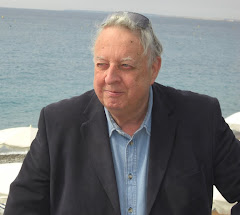Jascha Horenstein was a sure guide in Bruckner's 9th (I still find his reading of the demonic scherzo the most demonic of them all) but his 1952 recording was a bit thin and weedy. Later came many more, including van Beinum, Furtwängler, Jochum, Klemperer, Knappertsbusch, Schuricht and Wand, with Wilhelm Furtwängler's 1944 performance perhaps being the greatest of the great. Bruckner needs good sound -- the only conceivable drawback to Furtwängler and Horenstein. He needs a really good conductor, one who can control the ebb and flow of the music, retain a true pulse, shape the phrasing and sculpt the dynamics; and avoid Thomas Beecham's jibe against Bruckner that he heard seven pregnancies and six miscarriages.
There are conductors who achieve many column inches in the media -- Bernstein, Barenboim, von Karajan, Dudhamel, Rattle, et al. And conductors who achieve quiet reputations among cognoscenti and orchestral players: Boult, Klemperer, Horenstein, Knappertsbusch, Wand -- and Bernard Haitink. My father, an orchestral player for most of his life, thought the world of Pierre Monteux. A neighbour of mine who was a prominent player in the Philharmonia in the 1970s when I lived in London, when asked by me which of the present conductors the Philharmonia preferred, replied succinctly: “We don't mind who conducts us, as long as it isn't Menuhin”. Orchestral players have their own hierarchies and most, I suspect, regard most conductors as unnecessary and often expensive hangers-on. But not, I suspect, when it comes to Bruckner symphonies that really need an overall controller to sort out those questions of pulse, tempo and dynamics. A conductor-less orchestra would be hard-pressed in Bruckner.
Tellingly, Bruckner is rarely the pasture where media-celebrity conductors shine. I was gripped and enthralled all over again by Bruckner's ninth symphony in a new recording (2013, live) from Bernard Haitink and the LSO. I frequently smiled during this performance as Haitink so expertly negotiated Bruckner's many tempo changes, seams and joints. The performance is leisurely, as befits a conductor in his 80s and, I would argue, Bruckner's music of the late 19th century Austria where everyone was in less of a hurry than nowadays. The LSO plays superbly here, and the recording is really first rate. What more does one want? Well, Furtwängler in 1944 does provide that little something extra, but one has to weigh the something extra against the inferior sound. I give both Furtwängler and Haitink three stars in this work and am really pleased to have added 2013 Haitink to my collection.

No comments:
Post a Comment